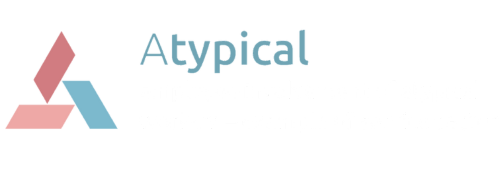Conceptual Framework
Typical employment – a term used to describe work carried out in a typical (classic) way, i.e.:
- full-time,
- at a specified place, usually a fixed place, which is an enterprise, during a specified time (specified working time),
- under the direct supervision of the employer, in a team, cooperating with others,
- with full social protection under labour law.
Atypical employment – the opposite of the traditional form of work. The use of working conditions and their organisation that differs from the rules of typical employment, that is:
- on a part-time basis (e.g., half, one-third of a full-time),
- in a mobile (changing) workplace, requiring mobility, organised in an unconventional way (virtual, remote, in the employee’s home),
- without fixed working hours, based on system of tasks (projects),
- with autonomy and flexibility of action, freedom to carry out the work duties,
- in isolation, independently, without close supervision by the employer,
- with the omission of some or all of the elements of social protection established by labour legislation.
IMPORTANT
Current labour laws are characterised by flexibility, individualisation, and deregulation. They need to respond to the challenges of the modern market, in particular increased competition, globalisation, modernity, instability and unpredictability of events.
***
The increasing flexibility of employment and the spread of atypical forms of work are justified by the fact that there are sudden changes affecting the labour market. This was proven by the COVID-19 pandemic, which suddenly gave rise to remote working. Another example is the economic crisis. Employment is maintained, but with reduced working hours so as not to increase unemployment. A contemporary challenge is the development of modern telecommunication technologies, the digital transformation and the industrial revolution that is taking place, with the prevalence of the service sector, automation, electrification and robotics. The traditional work structure based on hierarchy, formalisation and strict task assignment is increasingly giving way to atypical forms of employment associated with knowledge sharing, collaboration, decentralisation and tasking.
Worker – is a person in a relationship of dependence with an employer, who performs work for a fixed period of time in return for a fixed remuneration and is covered by the special protection of labour law.
Employee – is a person who performs a productive or service activity (work) for the other party based on a contract defining mutual rights and obligations, concluded in an autonomous manner in accordance with the interests of both parties.
Self-employed is a person who, for his or her own account and under his or her own responsibility, carries out an individual economic activity in cooperation with an enterprise and fulfils the tasks entrusted to him or her by that enterprise. In principle, the self-employed person acts as an employee, although formally he or she is an entrepreneur.
Information – is the provision of information by the employer to enable workers, through their representatives, to familiarise themselves with the subject and to consider it.
Consultation – the exchange of views and the establishment of a dialogue between the employer and the employees represented by their representatives.
Services – the term referring to a sector of economic activity of a non-productive nature that involves the provision of specific services or needs; services can be public (e.g., health care, education, community safety) or private (provided commercially).
Social dialogue – the series of interactions between employers and workers on industrial relations issues that take place at different levels (enterprise, regional, sectoral, national, international) and are conducted in different ways (e.g., informing, consulting, agreeing), adapted to the specific situation and needs of both parties. It is a process of formal or informal interaction aimed at reaching consensus.


